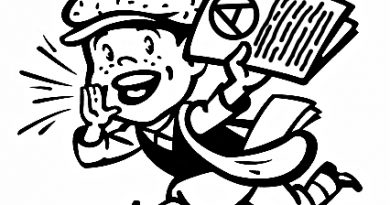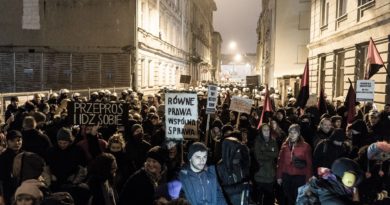Wspomnienie z granicy
Od momentu powrotu z granicy próbuję zabrać się za napisanie kilku zdań o tym, czego tam doświadczyłam. O granicy człowieczeństwa.
Niedziela rano. Otrzymujemy zgłoszenie o planowanym wypisie dwóch braci – Kurdów – ze szpitala w Bielsku Podlaskim. Ich stan jest ciężki, jeden z nich cierpi na zaawansowaną cukrzycę, jak relacjonuje Brat – prawie zmarł w lesie z powodu hiperglikemii. Ameer i Ramadhan są w trakcie procedur azylowych, dlatego w teorii po opuszczeniu szpitala nie powinni zostać wywiezieni z powrotem do lasu. Takie historie jednak miały już miejsce wielokrotnie, dlatego zabieramy potrzebne pełnomocnictwa i jedziemy przypilnować, aby dotarli do odpowiedniej placówki pod eskortą Straży Granicznej. Lekarz zajmujący się Irakijczykami wychodzi ze szpitala, gdzie czekamy na rozwój wydarzeń i tłumaczy: „stan jednego z braci jest bardzo ciężki. Kolejna wywózka – a co za tym idzie, brak dostępu do regularnych posiłków oraz leków – to pewna śmierć. Mówili mi, że jeśli znajdą się po raz kolejny w lesie, odbiorą sobie życie”. Dziękuje nam, że pomagamy. Po niecałej godzinie Bracia trafiają do ośrodka.
Choć był to mój pierwszy “graniczny” wyjazd, spotkałam w lesie różnych ludzi: w lepszym, gorszym stanie fizycznym; lepiej, lub gorzej przygotowanych do drogi. Każdy z nich jednak zagadywał, podpytywał, opowiadał coś o sobie. Ameer i Ramadhan nie mówili już nic. Kiedy z pomocą translatora próbowałyśmy przekazać im w szpitalu, że mamy zabezpieczone papiery, że nadzorujemy ich sytuację, że nie zostaną już po raz kolejny wywiezieni do lasu – patrzyli tylko smutnym wzorkiem, odpowiadając „ok.”
Nie wierzyli. O nic już nie pytali, o nic nie prosili. Nie mieli już sił ani nadziei.
—————————
Since I returned from the border, I have been trying to write a few sentences about what I experienced there. About the frontier of humanity.
Sunday morning. We receive a notification about the planned release of two Iraqi brothers from the hospital in Bielsk Podlaski. Their condition is serious, one of them suffers from advanced diabetes, according to brother – he almost died in the forest from hyperglycemia. Ameer and Ramadhan are under asylum procedures, so in theory, after leaving the hospital, they should not be taken back to the forest. However, such stories have already happened many times, so we take the necessary powers of attorney and go to make sure that they reach the appropriate facility under the escort of the Border Guard. The doctor dealing with the Iraqis comes out of the hospital, where we wait for the development of events, and explains: “One of the brothers is in a very difficult condition. Another deportation – and hence the lack of access to regular meals and medications – is certain death. They told me that if they found themselves in the forest again, they would take their own lives. ” Thank you for helping. After less than an hour, the Brothers arrive at the center.
Although it was my first “border” trip, I met different people in the forest: in better, worse physical condition; better or worse prepared for the road. Each of them, however, was chatting, asking questions, telling something about himself. Ameer and Ramadhan said nothing. When, with the help of a translator, we tried to tell them in the hospital that we had secured papers, that we were supervising their situation, that they would not be taken to the forest again – they looked only with a sad pattern, answering “ok.” They did not believe. They didn’t ask for anything anymore, they didn’t ask for anything. They no longer had the strength or hope.
No Borders Team



